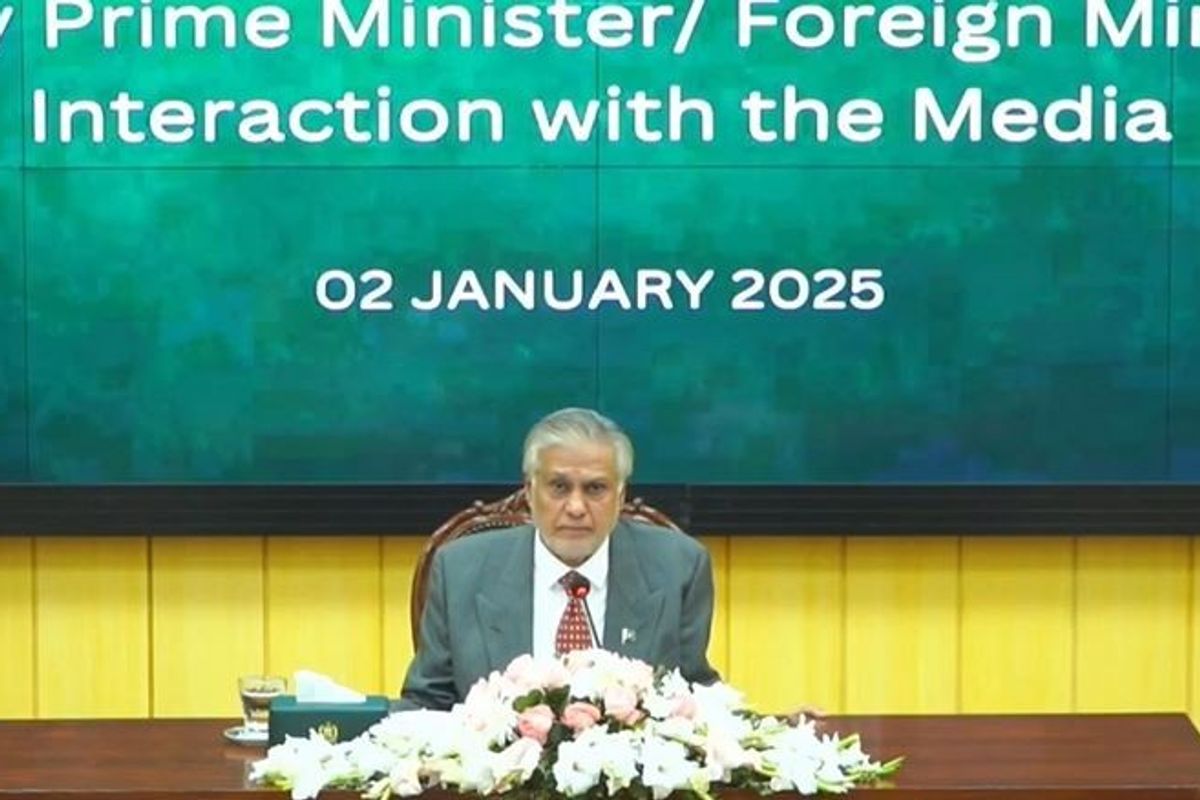‘Who opened borders for TTP over tea?’ Pakistan’s deputy PM slams ex-spy chief
Ishaq Dar reveals between 35,000 and 40,000 militants of TTP were brought back to country

Aamir Abbasi
Editor, Islamabad
Aamir; a journalist with 15 years of experience, working in Newspaper, TV and Digital Media. Worked in Field, covered Big Legal Constitutional and Political Events in Pakistan since 2009 with Pakistan’s Top Media Organizations. Graduate of Quaid I Azam University Islamabad.

Deputy Prime Minister and Foreign Minister Ishaq Dar address a press conference in Islamabad on January 2, 2025.
Courtesy: Facebook/Ministry of Foreign Affairs, Pakistan
Pakistan’s Deputy Prime Minister and Foreign Minister Ishaq Dar blamed ex-spy chief Faiz Hameed on Thursday for the resurgence of terrorism in the country, referencing his infamous visit to Afghanistan following the Taliban government's takeover in 2021.
“Who opened the borders for the TTP [Tehreek-e-Taliban Pakistan] over a cup of tea, and who facilitated their release?” he asked, referencing Hameed’s meeting with officials in Kabul, where he was candidly photographed having tea.
In September 2021, Lt. Gen. Faiz Hameed, who was then Director-General of the Inter-Services Intelligence (ISI), travelled to Kabul shortly after the Taliban’s return to power in Afghanistan. Hameed was widely regarded as a close ally of Imran Khan.
The visit, officially described as routine, was widely interpreted as an effort to engage with the Taliban leadership and potentially facilitate dialogue between Pakistan and the TTP. Hameed is now facing multiple charges in the country’s military courts.
Dar disclosed at the briefing that between 35,000 and 40,000 militants of the TTP were brought back to the country, raising significant concerns over the rationale behind these actions.
His remarks pointed to a decision made during the tenure of former Prime Minister Imran Khan to repatriate TTP militants as part of a strategy aimed at negotiating peace and addressing insurgency in Pakistan’s tribal regions.
Reports indicate that Khan’s administration planned to resettle these militants in the former Federally Administered Tribal Areas (FATA) as part of a reconciliation process.
- YouTubeyoutu.be
Economic diplomacy
Dar presented a 10-month performance review of the Foreign Office, emphasizing a shift toward economic diplomacy. He highlighted efforts to attract international investments, with Prime Minister Shehbaz Sharif’s visits securing $29 billion in commitments.
“Pakistan is transitioning from traditional to economic diplomacy, ensuring economic stability and international cooperation,” he said.
Key achievements included 23 agreements signed during Sharif’s visit to China and the progression of the China-Pakistan Economic Corridor (CPEC), including the ML-1 railway project’s implementation phase.
Progress on PIA and CPEC
Dar announced that Pakistan International Airlines (PIA) resumed flights to the UK and European Union after years of suspension. The suspension, caused by a former cabinet member’s statement, cost the national carrier PKR 87 billion annually.
“We met all international requirements and amended Civil Aviation Authority regulations to restore flights,” he said.
Dar revealed plans to visit Malaysia and Bangladesh in early February to strengthen bilateral relations. “From February 3 to 5, I will visit Malaysia and also travel to Dhaka,” he stated.
Clarifications on Gwadar and US relations
Addressing rumors, the Foreign Office denied allegations that Gwadar Port would be handed over to a foreign government. “Gwadar Port was developed in cooperation with China, and there is no truth to these claims,” the spokesperson said.
On U.S.-Pakistan relations, the spokesperson described ties as positive, grounded in mutual cooperation. He noted that while relations with Syria remain minimal, Pakistan’s embassy in Damascus is operational.
Dar acknowledged economic and security challenges but reaffirmed the government’s commitment to stability.
“Pakistan’s resilience lies in its ability to adapt and thrive despite adversity,” he said.










Comments
See what people are discussing